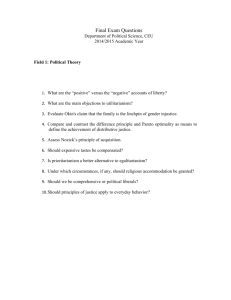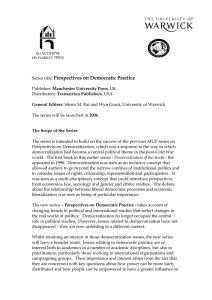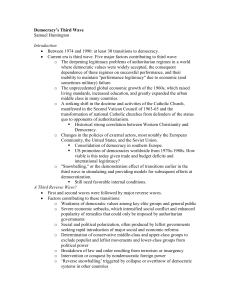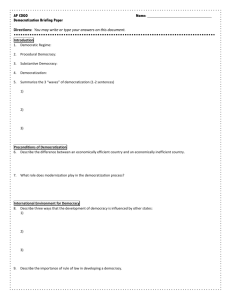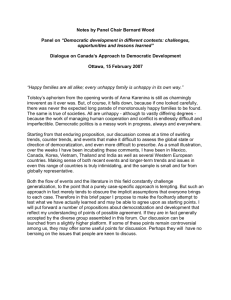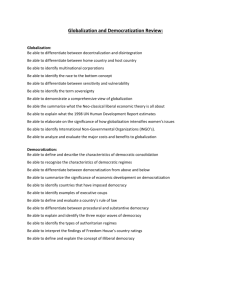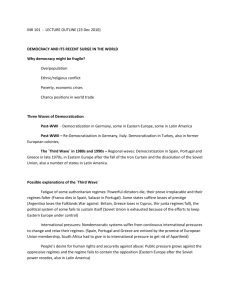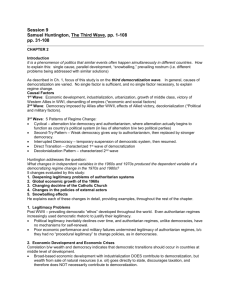Democracy
advertisement
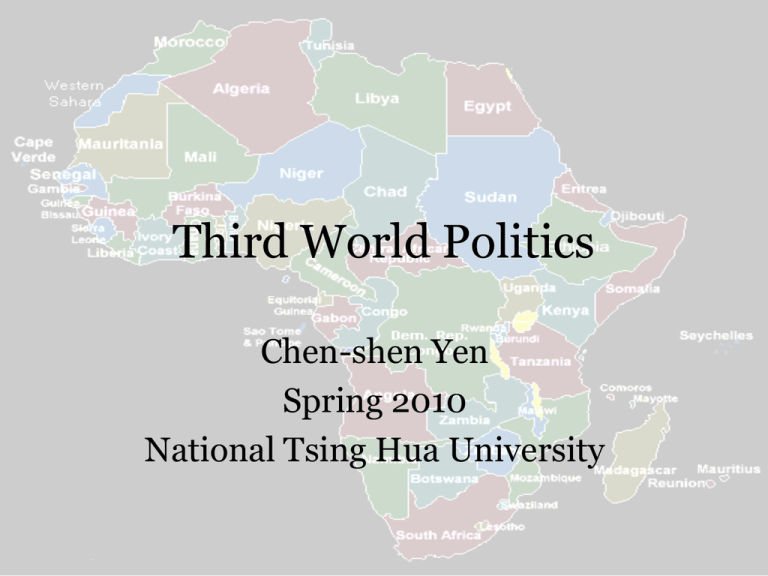
Third World Politics Chen-shen Yen Spring 2010 National Tsing Hua University Democracy • • • • • Three Waves of Democratization Definition of Democracy Types of Non-Democratic Regimes Developmental Perceptions Dependency Perceptions Democracy • Democratic Transformation: Liberalization, Democratization, Democratic Transition, Democratic Consolidation, Deepening of Democratization and Democratic Reversal • Regional Analysis Three Waves of Democratization • • • • • • • • First Wave Second Wave Third Wave 1. Southern Europe 2. Latin America 3. East Asia 4. Eastern Europe 5. Sub-Saharan Africa Author’s Definition of Democracy • Regular, competitive elections • Free participation of individual leaders and groups in the electoral and political process • Democratic leaders and institutions being autonomous Types of Non-Democratic Regimes • • • • Communist Governments Non-Communist One-Party States Personalist Regimes Military Regimes Developmental Perspectives • • • • Factors leading to democracy 1. good political leadership 2. political culture conducive to democracy 3. long-term increases in wealth Developmental Perspectives Seymour Martin Lipset’s Theory on Wealth 1. Only a rich economy makes high levels of literacy, education and exposure to mass media possible. 2. An affluent economy can mitigate political tensions through providing alternative opportunities for unsuccessful political leaders. Developmental Perspectives Seymour Martin Lipset’s theory on wealth 3. A wealthy, complex economy cannot be governed efficiently by authoritarian means; rules and regulations must be based on the consent of the affected. 4. A state with a wealthy economy tends to have fewer poor people because income is distributed more equally than in unprosperous countries Developmental Perspectives • Samuel P. Huntington’s preconditions for democracy • 1. Choices made by political elites (zone of transition) • 2. Pro-democracy pressures exerted by a wellorganized middle class (social structure) • 3. External pressures on non-democratic regimes (international environment) • 4. Cultural factors of a society conducive to democracy (cultural Dependency Perspectives • 1. Strong civilian control over the armed forces; • 2. enhanced concern for human rights, economic equity, social justices and the rule of law; • 3. greatly increased political participation by the poor, minority ethnic groups, women and young people Democratic Transformation • • • • • • 1. Liberalization 2. Democratization 3. Democratic Transition 4. Democratic Consolidation 5. Deepening of Democratization 6. Democratic Reversal Regional Analysis • • • • • Latin America and the Caribbean Sub-Saharan Africa The Middle East and North Africa South Asia East and Southeast Asia

